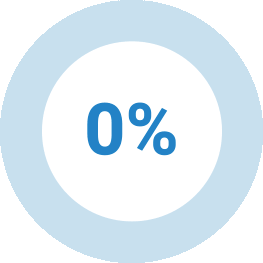Sustainable Finance | October 25, 2023

Head, BMO Climate Institute

- Overview
- Motivating Factors
- Confidence Check
- Carbon Credits
- Financial Help
- Priorities
- Climate Standards
Corporate leaders in North America are increasingly putting plans in place to address the challenge of climate change, with a steep rise among U.S. businesses compared with last year, according to results of the second annual poll commissioned by the BMO Climate Institute.
After unprecedented extreme weather and wildfires in 2023, business leaders in both Canada and the United States say they are taking measures on climate change not only to help the environment but also to run their companies more effectively and reach their sustainability goals, the survey shows.
The 2023 BMO Climate Institute Business Leaders Survey found the share of U.S. companies with climate mitigation plans rose sharply to 38 percent from 28 percent in the previous survey in 2022, while those saying they are still in the process of developing plans dropped to 29 percent from 38 percent. In Canada, 27 percent of respondents say they now have a plan to address climate change compared with 24 percent previously.
Motivating Factors
The current survey took place during a tumultuous year of extreme weather-related events, intensified by a warming climate. July was the Earth's hottest month on record, going back to at least 1880, according to NASA scientists.
Helping the environment is still the most frequently cited reason in the survey for taking climate action. However, as the climate challenge grows, business leaders are increasingly paying attention to the business implications. Indeed, the share of North American business leaders who say they are taking action because of the climate's impact on everyone's lives decreased to 35 percent from 48 percent in the previous survey.
Instead, a growing amount of business leaders are seeing the climate's impact on the operation of their companies as a driving factor. In the United States, business leaders who say their company is better run by addressing climate change rose to 33 percent from 27 percent in the previous survey. In Canada, 28 percent of business leaders say they are taking action to meet corporate sustainability goals, up from 23 percent.



of U.S. business leaders say they have a plan to address climate change, up sharply from 28% in the previous survey.
This trend suggests business leaders' growing understanding that climate change, in addition to affecting their communities, is a business factor with risks and potential opportunities. It is also something that customers and investors are holding corporate stakeholders accountable for.
The BMO Climate Institute commissioned this survey to support BMO's ambition to be its clients' lead partner in the transition to a net-zero world. Understanding what motivates business leaders to address climate change is critical to accelerating the energy transition.

Conducted by Pollara on behalf of the BMO Climate Institute, this online survey was conducted with 700 business leaders in the United States and Canada for companies with at least five employees. Research was conducted from August 4 to August 23, 2023. Since the inaugural survey in 2022, the scope of the research has expanded to include more companies of all sizes.
Confidence Check
Despite more companies implementing climate mitigation plans, business leaders, particularly in the United States, have become less certain about the impact of various actions related to reducing greenhouse gas emissions.
For example, U.S. and Canadian respondents are both most likely to say using resources that are renewable, compostable and/or recyclable has a strong impact on emissions reduction. On the other hand, they are not as sure of it as the previous survey. The percentage of respondents saying the action has a strong impact fell 10 points to 74 percent and 11 points to 72 percent, respectively, among U.S. and Canadian business leaders.
Nevertheless, at least a third of all respondents say their companies are still encouraging more climate action in one or more areas. The top three most frequently cited in the survey are: taking environmental impact into account when making financial decisions, using zero-emitting energy sources, and using resources that are renewable, compostable and/or recyclable.
A carbon accounting approach could help business leaders gain a better understanding of which corporate actions have the biggest impact on their organizations and what to include in their climate mitigation plans. Carbon accounting is the practice of tracking and reporting emissions.
"It's encouraging to see more North American business leaders are implementing plans to mitigate the impact of climate change on their companies. As part of this process, carbon accounting can help identify opportunities for emissions reduction and transparency in tracking. BMO has a strong track record of helping clients understand the importance of carbon accounting and providing tools to manage their carbon footprint."
Melissa Fifield, Head, BMO Climate Institute



The Importance of Carbon Credits
A growing majority of North American companies are turning to carbon offset markets to help manage their transition risk, but very few have a strategy in this area to support their climate mitigation plans, the survey showed.
Purchasing carbon credits, which are also known as emissions offsets, is the only action in which more business leaders, compared with the previous survey, either say their companies have a formal strategy in place or are creating one. The gain is most pronounced in Canada, where 52 percent of respondents are focused on buying carbon credits, up sharply from 44 percent previously. In the United States, 53 percent of business leaders have a carbon credit strategy or are planning to form one, up from 50 percent.

53%
of business leaders in North America say they have a carbon credits strategy, or they are forming one vs. 47% previously.
Survey participants' increased focus on carbon credits is supported by expectations for exponential growth in the voluntary carbon market. BloombergNEF forecasts that the total value of carbon credits bought or sold could grow to $1 trillion by 2037 under certain conditions, from around $2 billion today.
However, only 19 percent of North American business leaders say they currently have a strategy that aligns their carbon credit purchases with specific sustainability goals. By comparison, 37 percent of respondents say they have a formal strategy for using renewable, compostable, and recyclable resources. As more companies explore emissions offset solutions, business leaders will likely need a deeper understanding of the market and how offsets can best contribute to the goals of a climate plan.
"High-quality emissions offsets will, for many organizations, be a necessary part of the journey to a net-zero world. BMO is dedicated to helping its clients drive economic opportunities while reducing emissions, including activities such as buying and trading carbon credits."
Jonathan Hackett, Co-Head, BMO Energy Transition and Head, Sustainable Finance
Financial Help
A solid majority of business leaders would like to hear more about financial options to improve climate resilience. For example, 67 percent say they would be interested if their financial institution offered help with offsets and carbon credits trading.
More than three-quarters of survey respondents say they would also be interested in insights on how to adapt and thrive in the evolving climate landscape, financial premiums for meeting climate-related targets, and analysis of how climate will impact their businesses.
This is not to say that financial institutions are meeting those needs. In North America, 46 percent of business leaders say the financial sector needs to do more to help companies adapt to climate change, down only slightly from 49 percent in the previous survey.



say they would be interested if their financial institution offered help with offsets and carbon credits trading.
Competing Priorities
Cost is a growing barrier to developing a climate plan for North American companies, particularly in Canada. More than a third of Canadian companies (34 percent) cited cost as an obstacle, up from 28 percent in the previous survey.
Cost expectations for developing and implementing a climate plan have also risen. Nearly a third of North American business leaders (31 percent) believe it will cost between $10,000 and $100,000, up from 26 percent in the previous survey, and nearly half (49 percent) think it will cost more than $100,000, up from 46 percent. This is a similar sentiment in both Canada and the United States.

Concerns about the costs of developing and enacting a climate plan have grown, especially in Canada. The share of Canadian business leaders who say cost is the biggest barrier to a climate plan grew to 34 percent from 28 percent previously.
Cost concerns are unsurprising given that inflation and rising interest rates are by far the most worrying factors for survey respondents. Still, climate change remains a concern for a large majority of North American businesses of all sizes. More than two-thirds of respondents (68 percent) say it is a concern for their future business compared with 71 percent previously.
Climate Standards
Most Canadian and U.S. companies surveyed continue to have reservations about governments' level of ambition to achieve climate targets, whereas approximately a quarter in both countries said the current targets need more ambition. This underscores the need for greater dialogue between the private and public sectors to ensure alignment on the policies needed to achieve net zero.
The survey took place approximately one year after the U.S. Inflation Reduction Act was signed into law, the largest U.S. government investment to address climate change and the transition to clean energy.
In the United States, 39 percent of respondents described government policies on climate change as too ambitious, a significant increase from 21 percent in the previous survey. In Canada, 26 percent of business leaders say the same thing about their government's climate policies, up slightly from 21 percent.
The views of U.S. and Canadian business leaders on the climate-related goals of industry competitors are contrasting. Canadian respondents who describe the climate commitments of competitors as lenient jumped to 49 percent from 39 percent in the previous survey. U.S. business leaders who say the same thing slipped to 38 percent from 41 percent in 2022.
These different perspectives between U.S. and Canadian business leaders will be an important area to monitor in the future because of the importance of the private sector in accelerating the energy transition.

The BMO Climate Institute
Established in 2021, the BMO Climate Institute bridges science, policy, finance, and economics to help accelerate climate solutions. The Institute supports BMO's ambition to be our clients' lead partner in the transition to a net-zero world by engaging with industry, the public sector, academia, and investors.
You might also be interested in
A Buyer’s Guide to Corporate Offsetting and Navigating the Voluntary Carbon Market
Why Sustainability Is Good Business: Key Takeaways from IEFA Toronto 2024

Building for Tomorrow: Real Estate, Construction, and Sustainability
A First in Western Canada: Avenue Living Leverages BMO's Retrofit Program to Add 179 New Rental Units in Downtown Edmonton

How NASA and IBM Are Using Geospatial Data and AI to Analyze Climate Risks
BMO Arranges Green Financing to Fund New Lawson Centre for Sustainability, Trinity College's Most Significant Build in a Century
BMO ranked one of the most sustainable companies in North America on the Dow Jones Sustainability Indices
Canada Has an Opportunity to Become a Global Leader in Carbon Dioxide Removal
BMO Climate Institute Business Leaders Survey: Nearly Half of Business Leaders in the U.S. and Canada Believe Climate Change Has Already Affected Their Businesses, but Few Have a Strategy
How the Energy Sector Is Helping Canada Achieve Its Decarbonization Goals
Why Businesses Need to Accelerate Their Efforts to Fight Climate Change
Transforming the Global Food System to Benefit Investors and the Planet
Banco do Brasil and BMO Financial Group to Introduce First-of-its-Kind Program to Provide Sustainability-Linked Trade Loans Supporting Brazilian Exporters
BMO Donates $3 Million to GRID Alternatives to Provide Solar Energy Solutions for Low-Income Families
BMO Provides Innovative New Sustainability-Linked Deposit Product to Zurn Elkay Water Solutions

Quick Listen: Michael Torrance on Empowering Your Organization to Operationalize Sustainability
BMO and Bell Canada Execute Innovative Sustainability-Linked Derivative Tied to Ambitious GHG Emission Reduction Targets
BMO Named to UN-Convened Group Providing Guidance to Global Banks on Nature Target Setting
Driving Innovations In Tech To Strengthen Climate Resilience With Climate Engine’s Spatiafi, Built On Google Cloud
BMO Celebrates Earth Day with 3rd Annual Trees from Trades Day on its Global Trading Floors
BMO Donates $2 Million to the University of Saskatchewan to Accelerate Research Critical to the Future of Food

North America’s Critical Minerals Advantage: Deep Dive on Community Engagement
Rock Legends Reflect on Mining Hits and Misses: Global Metals, Mining & Critical Minerals Conference
The Most Valuable Commodity is Trust: ICMM to BMO Global Metals, Mining & Critical Minerals Conference
Exploring North America’s Critical Minerals Advantage: Global Metals, Mining & Critical Minerals Conference
BMO Experts at our 32nd Global Metals, Mining & Critical Minerals Conference

Evolving Mining for a Sustainable Energy Transition: ICMM CEO Rohitesh Dhawan in Conversation

Public Policy and the Energy Transition: Howard Learner in Conversation

Taskforce on Nature-Related Financial Disclosure (TNFD) – A Plan for Integrating Nature into Business
Takeaways from the BMO Climate Institute Small and Mid-Sized Businesses Climate Survey
BMO Ranked North America's Most Sustainable Bank by Corporate Knights for Fourth Consecutive Year
Is Green Financing for Nuclear the Next Frontier in the Energy Transition?
BMO ranked one of the most sustainable companies in North America on the Dow Jones Sustainability Indices
BMO Climate Institute Survey Shows Costs and Competing Priorities Slowing Climate Action for Small and Mid-Sized Businesses
Managing and Monetizing Your Transition to a Net Zero World with BMO and Radicle
BMO the Top Ranked Financial Institution on New Global Sustainability Benchmark Announced at COP 27

COP27 in Focus: Will Energy Security and Economic Uncertainty Impact the Climate Transition?
BMO to Invest in Innovative Carbon Offsets from CarbonCure to Permanently Store CO2

RoadMap Project: An Indigenous-led Paradigm Shift for Economic Reconciliation
A Canadian First: BMO and Concordia University Partner for a Sustainable Future with Innovative Sustainability-Linked Loan

Sustainability Strategy and Reporting for Small and Medium Sized Companies: A Discussion at the Conference of Montreal
BMO to Acquire Calgary-based Radicle Group Inc., a Leader in Environmental Services

Investment Opportunities for a Net-Zero Economy: A Conversation at the Milken Institute Global Conference

How Hope, Grit, and a Hospital Network Saved Maverix Private Capital Founder John Ruffolo

Hydrogen’s Role in the Energy Transition: Matt Fairley in Conversation

Key Takeaways on Ag, Food, Fertilizer & ESG from BMO’s Farm to Market Conference
Exploring the Physical and Transition Risks Facing Food and Agriculture

Building an ESG Business Case in the Food Sector: The Food Institute
BMO and EDC Announce Collaboration to Introduce Sustainable Finance Solutions for Canadian Businesses

Retrofitting Canada's Building Sector: Efficiency Canada’s Corey Diamond in Conversation

The Role of Hydrogen in the Energy Transition: FuelCell Energy CEO Jason Few in Conversation
BMO proud to support first Government of Canada Green Bond transaction as joint-lead manager
Op Ed: Government Action Can Help Spur More Home Building To Address Canada’s Housing Shortage

Tackling Climate Change in Metals and Mining: ICMM CEO Rohitesh Dhawan in Conversation
BMO Launches Business Within Reach: BMO for Black Entrepreneurs and Commits $100 million in loans to Help Black-led Businesses Start up, Scale up, and Grow

The Post 2020 Biodiversity Framework – A Discussion with Basile Van Havre
BMO Announces Plan to Partner with Breakthrough Energy Catalyst to Accelerate Climate Innovation
BMO Financial Group Named North America's Most Sustainable Bank for Third Consecutive Year
Mitigating the Physical Impacts of Climate Change with Spatial Finance
BMO Helps Boralex Go Beyond Renewable Energy, with the Transition of its Credit Facility to a Sustainability-Linked Loan
A Global First: BMO Supports Bruce Power with World's First Nuclear Green Financing Framework
BMO ranked one of the most sustainable companies in the world according to Dow Jones Sustainability Indices
The Future of Remote Work and Diversity in the Asset Management Industry
North American Metals & Mining first: BMO helps Sandstorm Gold Royalties achieve ESG goals with Sustainability-Linked Loan
Education, Employment and Economic Empowerment: BMO Releases Wîcihitowin ᐑᒋᐦᐃᑐᐏᐣ- First Annual Indigenous Partnerships and Progress Report
BMO Announces $12 Billion Financing Commitment towards Affordable Housing in Canada
BMO supports Canada's bid to host the headquarters of the International Sustainability Standards Board
In support of Canada’s bid to host the headquarters of the International Sustainability Standards Board
BMO Named to Canada's Best 50 Corporate Citizens Ranking by Corporate Knights
A North American First: BMO Helps Gibson Energy Fully Transition Credit Facility to a Sustainability-Linked Loan

Understanding Biodiversity Management: Best Practices and Innovation

Episode 29: What 20 Years of ESG Engagement Can Teach Us About the Future
BMO Financial Group 2020 Sustainability Report and Public Accountability Statement Now Available Online

Episode 28: Bloomberg: Enhancing ESG Disclosure through Data-Driven Solutions
BMO Ranked Among Most Sustainable Companies on Dow Jones Sustainability Index - North America
BMO investing in a sustainable future with $1M donation to the Institute for Sustainable Finance
BMO Financial Group Reaches Key Milestone in Matching 100 Per Cent of Electricity Usage with Renewables
BMO Financial Group Recognized as One of the World's Most Sustainably Managed Companies in New Wall Street Journal Ranking

Episode 23: TC Transcontinental – A Market Leader in Sustainable Packaging
BMO Financial Group to Source 100 Per Cent of Electricity Usage From Renewables

Episode 07: World Bank: Mobilizing Capital Markets for Sustainable Finance

Episode 06: Responsible Investing – Industry Trends and Best Practices from Canada











